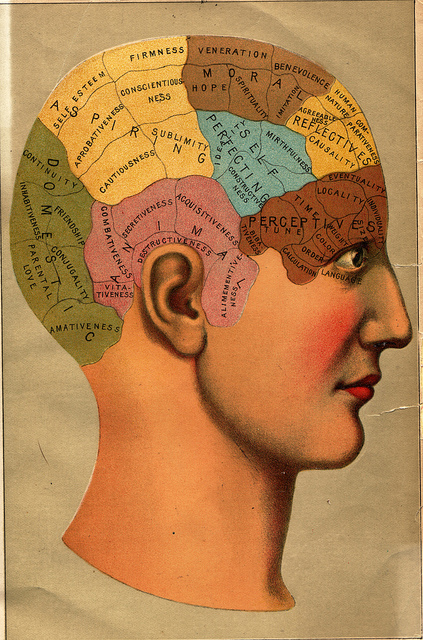I live in New York City—the playground of playgrounds.
I recently experimented with a particular dating app known for short-term hook ups. The combination of the city with this particular app results in, well, a total zoo. Primordial behavior runs rampant. Jungle rules apply.
You have to be ready for the terrain: tool belts, hiking boots and most of all, a good map.
I am a traveler. I enjoy navigating foreign terrain. And I am typically a serial monogamous, years of long-term relationship after long-term relationship with desert in between.
The rules of this type of playground are foreign to me. So, you can imagine, once I connected with someone that blew the doors off of my primordial cage, things got a bit…cloudy. The traps were set brilliantly, and I walked right into oxytocin-flooded, dopamine-induced crazy town.
Welcome, the sign read on the door. Welcome to a cloud of insanity for the next seven days. Madly in love? Or just mad?
We can blame nature. Okay, yes, let’s blame nature. But that doesn’t make the confusing and drug induced seven days after sex—whether it is with your long term partner, a one night stand or a new potential love—any easier.
Women’s brains are wired differently than men’s. We have been given the gift of high levels of oxytocin in order to perpetuate our species. Thank you, Mother Nature. Be sure to check the nightstand on your way out.
So what exactly is oxytocin, and why should we be on the lookout for it running through our brains?
Oxytocin is a hormone released during orgasm as well as child birth. Often referred to as “the bonding hormone,” it helps modulate the messages we send to our brain and therefore affects our behavior immediately, whether we like it or not, as it it is released.
Oxytocin often evokes feelings of contentment, calmness and security when released in the company of the mate—fueling romantic attachment. This doesn’t even include the surge of dopamine sent to our brains during sex that basically mimics a dose of cocaine.
As women in the jungle of urban, online dating, we need to know this: unfortunately the playing field is not equal.
Remaining unconscious to a process so hardwired within our own bodies seems criminal to me. We need to be able to understand the game our brains are playing and become an active participant—able to discern hormone-induced attachment from long term, positive partnership attachment.
Anthropologist Helen Fisher states,
“A woman unconsciously uses orgasms as a way of deciding whether or not a man is good for her. If he’s impatient and rough, and she doesn’t have the orgasm, she may instinctively feel he’s less likely to be a good husband and father. Scientists think the fickle female orgasm may have evolved to help women distinguish Mr. Right from Mr. Wrong.”
The question then becomes, how do we navigate our doped-up brains?
If you are in a long-term committed relationship, you may be in a situation where you feel safe to let the oxytocin flow (or maybe not). Perhaps you simply don’t want to be perceived as “smothering” or “needy”—negative terms often not-so-delicately thrown around towards women in this state. Having an awareness and deeper understanding about what is going on in your brain will help you act in ways that honor who you are and how you want to communicate.
If you are in the throes of a one-night stand or even a burgeoning love, the same rules apply. If you are aware of the party that is going on in your brain, you can more easily become an observer of it and therefore have more control over your own emotions and actions. Sound familiar?
Welcome, meditation.
Yes, this is where any time you have spent on the mat or cushion comes in handy big-time. You can take a deep breath, reflect on how you are feeling and discern what emotions are purely hormonally induced and what emotions really honor who you are.
And if you become overwhelmed, take a seven-day break. Once the chemicals dissipate, the oxytocin and dopamine cocktail cloud will lift allowing you to reconnect with your more sane self as well as with what you really wanted to begin with. Which could very well be to start the party all over again.
So, a few simple tips to help navigate your section of the jungle:
1. Be aware of the party:
Oxytocin and dopamine, while welcome friends, are powerful and influential and can easily become foe when left to run unattended. Be aware of them.
2. Become an observer:
Take a deep breath and identify your hormonal guests and watch them play. Envision yourself on your yoga mat or meditation cushion and observe the effects they have on your emotions.
3. Take control over the party:
Leverage your newfound awareness and act in ways that honor who you are and what you really want.
4. If you become overwhelmed or feel overly swept off your feet:
Take a seven day break—let the hormones dissipate and decide what you want before falling madly in love, or just going mad. The choice is yours.
But I recommend filling up your tool belt and studying your map before getting lost in the jungle.
Be prepared, ladies. It truly is a jungle out there.
Author: Bridget Tate
Editor: Emma Ruffin
Photo: Ky/Flickr
 Share on bsky
Share on bsky


Read 9 comments and reply